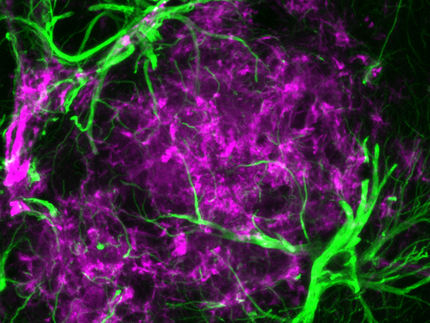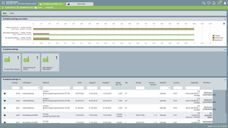Ciphergen announces discovery of a potential multi-biomarker test for Alzheimer's disease using SELDI ProteinChip(R) technology
Advertisement
Ciphergen Biosystems, Inc. announced the discovery of a novel biomarker pattern for potential diagnostic use that correctly classified >96% of Alzheimer's disease (AD) and >94% normal individuals using a 4 peak pattern of markers. Results were presented at the Society for neuroscience 33rd Annual Meeting in New Orleans.
Ciphergen's Biomarker Discovery Center(R) scientists, working in collaboration with Professor Kaj Blennow of Sahlgren's University Hospital in Sweden, analyzed cerebrospinal fluid (CSF) from probable Alzheimer's patients and age-matched normal individuals using Ciphergen's SELDI ProteinChip Biomarker System and patented Expression Difference Mapping(TM) methodology.
Profiling of CSF samples on a variety of ProteinChip Arrays revealed 39 candidate biomarkers (P-value < 0.0001) that were differentially expressed in samples from Alzheimer's patients versus age-matched normal control individuals. Ciphergen scientists then used its proprietary Biomarker Patterns(R) software to select a pattern of four biomarkers that correctly classified 29 out of 30 Alzheimer's patient samples and 33 out of 35 age- matched normal individuals.
Further studies analyzing over 200 additional samples are underway to validate these markers for their utility in diagnosing early stage Alzheimer's disease as well as in differentiating AD from other dementias using the Ciphergen platform.
Alzheimer's disease is the most common form of dementia worldwide, afflicting approximately 10 percent of people over the age of 65 and nearly half of those at age 85. The pathology of the disease is characterized by the accumulation of amyloid plaques and neurofibrillary tangles in the brains of patients.
Today, there is no simple test that can be used for the reliable diagnosis of Alzheimer's disease. Existing biochemical markers lack the sensitivity and specificity for routine clinical use, particularly for differentiation of Alzheimer's disease from other dementias. Moreover, there is also a pressing need for biomarkers to support the development of new disease modifying drugs. Novel markers that can differentiate patient cohorts for enrollment in clinical trials, assess dose-response and monitor drug efficacy and disease progression have the potential to greatly reduce cost and time of bringing these new therapies to market.
"We are delighted to see that our SELDI ProteinChip technology has enabled the discovery of biomarkers, which potentially may be used to diagnose Alzheimer's disease," stated William E. Rich, President and CEO of Ciphergen Biosystems. "We also believe that pharmaceutical companies developing Alzheimer's therapeutics would greatly benefit from a protein-based test to help with compound selection and treatment monitoring."
Professor Kaj Blennow of the Sahlgren's University Hospital commented: "The increasing awareness of the possibilities for drug treatment of AD has made people with memory disturbances seek medical advice very early. In this phase of the disease, there is no clinical method to determine which of these patients will progress to AD with dementia, and which will not. The AD profile discovered in this study using the SELDI ProteinChip technology may be a major breakthrough as a method to help clinicians identify AD very early in the disease process. This may have a large impact if the new drugs aimed at slowing down the degenerative process (e.g. beta-amyloid vaccination regimes and secretase inhibitors) prove to have a beneficial clinical effect, since they will probably be most effective before neurodegeneration is too severe."
Ciphergen has filed a patent application that covers the use of the novel biomarkers and biomarker patterns for diagnosis of Alzheimer's disease.


























































